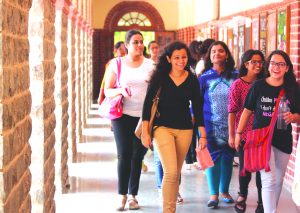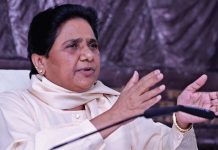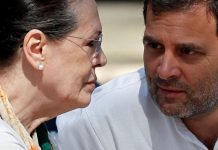 According to the survey cum referendum conducted by Delhi University Teachers’ Association (DUTA), “Over 90% of students are unprepared for any form of University Examinations.” As many as 51,452 students participated in this survey, which reveals the inability to access the internet in the first place and difficulties in accessing the study materials provided by teachers.
According to the survey cum referendum conducted by Delhi University Teachers’ Association (DUTA), “Over 90% of students are unprepared for any form of University Examinations.” As many as 51,452 students participated in this survey, which reveals the inability to access the internet in the first place and difficulties in accessing the study materials provided by teachers.
In the wake of Coronavirus, Delhi University (DU) proposed Open Book Examination (OBE) for the final-year students, which has received greater criticism from both students and teachers.
As most of the students went back home for their mid-semester break which included Holi, got stuck at their respective home towns after the nationwide lockdown was announced. University’s decision of announcing online classes without considering the current infrastructure facilities and strata of students coming from different background shows the callousness towards its education system.
The uneven process of online classes majorly failed to deliver quality education and caused distress to the students. Talking to the number of students’ draws attention to the negligence of the university in terms of announcing a single guideline for all the subjects; students pointed out that each subject needs a different approach to study and the university mostly failed in providing appropriate assistance.
Amreen, a 3rd-year student from Gargi College, who hails from Ludhiyana, Punjab spoke about the preparedness for the exam. She said, “I have come to know that there will be applicable questions in OBE but usually we do not get application questions. I am not very sure about this.”
DU proposed the two-hour OBE format, in which examination will take place in three shifts — morning, afternoon and evening. For that, we need a minimum of 4g internet connection and a laptop. DU has organised centres for those who don’t have any of the above facilities.
Talking about the nature to OBE, Amreen explains, “Usually we get three hours to attempt five questions but in OBE we will get two hours to attempt four questions. The extra one hour will go in downloading the question paper, scanning and uploading the answer sheets. So technically, the time has been reduced and a lot of things depend on internet connectivity.”
Alyasa, a 3rd-year Economics (Hons.) student from Zakir Hussain College called this methodology “arbitrary” and pointed out that communication from the administration has been uneven and non-existent, as the students and teachers are not familiar with the pattern of such examination process.
He said, “In such a situation, an effective solution would have been to first familiarise the students and teachers with this concept, ask teachers to hold classes for such a format, give students questions/assignments to practice OBE style questions, and then take an informed decision.”
The DUTA survey also reveals that “38% of students have not been able to access materials” even when it has been provided to them and “only 28% of students have been able to attend more than 50% of the online classes”.
Amreen shared that her many friends and classmate could not attend online classes due to lack of internet facilities at their homes. She said, “Around 14-15 students used to attend online classes out of 25. Not everyone had access to books in the first place so, we didn’t know where to begin with.”
Another student Aparajita, who is persuading Mathematics (HONS) from Miranda college, informed that a maximum of 16 and a minimum of 7 students had attended the online classes, out of 40 students, due to unstable internet connectivity.
Aparajita was at home when the lockdown was announced and left with no books and study materials as she went back home, like the majority of the students did, for her mid-term breaks. She said, “Even though our teachers tried really hard but the output we got was disheartening. The classroom teaching is way higher than online classes.”
Another student of 3rd-year History honours, Darshan, who hails from Uttarakhand told that he had to opt for YouTube videos because teachers are not responsive. He said, “I could not attend more than 2 online classes due to the disruptive internet connection in my village. Therefore, I had to rely only on the study materials, for which I had to travel 30-40 Km to get printouts.
Empathising with the students many teachers agreed that online classes cannot offer collective learning. With 50% students coming from outside Delhi, online classes become limited in terms of lack of internet service, devices or electricity and the absence of an environment conducive for education.
Besides, the accessibility issues, one of the main concerns is the demographic diversity of the students, which need to be addressed urgently.
Talking about means of valuable teaching, Dr. Maneesha Roy, Asst. Professor of Political Science in Gargi College said, “Technology-based learning requires ownership of technological tools and data purchase capacity to join online classes. The students from underprivileged backgrounds will miss the education altogether. Even for faculty, equal access to good research and study material online is a challenge to their social and spatial.”
The inability to use online methods due to different reasons is not only limited to the students, as many teachers have also faced similar difficulties. Without any training or briefing from university, the teachers were struggling to use the online platforms.
Dr. Roy finds the online process of education extremely limited for several reasons. She said, “No help was provided by the University in terms of training or briefing except a set of guidelines to initiate online classes.”
She further said that there was a great deal of anxiety particularly among 3rd-year students. The teachers responded to the exigency by sporadically reaching out to the students and many of them hastily began taking virtual classes. “Despite all my efforts, only 50 % of students attended online classes. The engagement was not meaningful as it was just a monologue from my side and the students were passive listeners,” said Dr. Roy.
Online education provides limited learning minus the proper learning environment facilitated by interaction among students and faculty which improves learning outcomes. “In the current scenario, we have used online education as a stop-gap arrangement. It cannot substitute face to face teaching,” said Dr. Roy.
While talking about the process of OBE, Dr. Roy said that it is an enigma to both students and teachers and both of them are clueless. She is also receiving panic calls from students due to the confusion and chaos created by the digital and class divide. “Those who have prepared question papers are also not trained for assessing OBE answer scripts. Students are extremely vulnerable during this time and we are trying our best to reach out and comfort them.”
Rajib Ray, the president of DUTA said that there was no proper training or briefing for the teachers. He said, “No training took place for the teachers and they weren’t ready for this. Having a smartphone does not make one equipped to use it too.”
He appreciated the efforts by the teachers and said that they tried their best but unfortunately could not reach out to more than a particular number of students. “We need proper infrastructure and training for teachers to seek better results,” he added.
letters@tehelka.com












